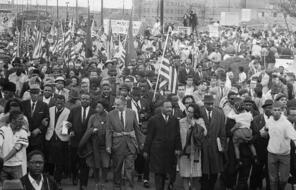Breadcrumb
A Class Divided
At a Glance
Language
English — USSubject
- History
- Racism
A Class Divided
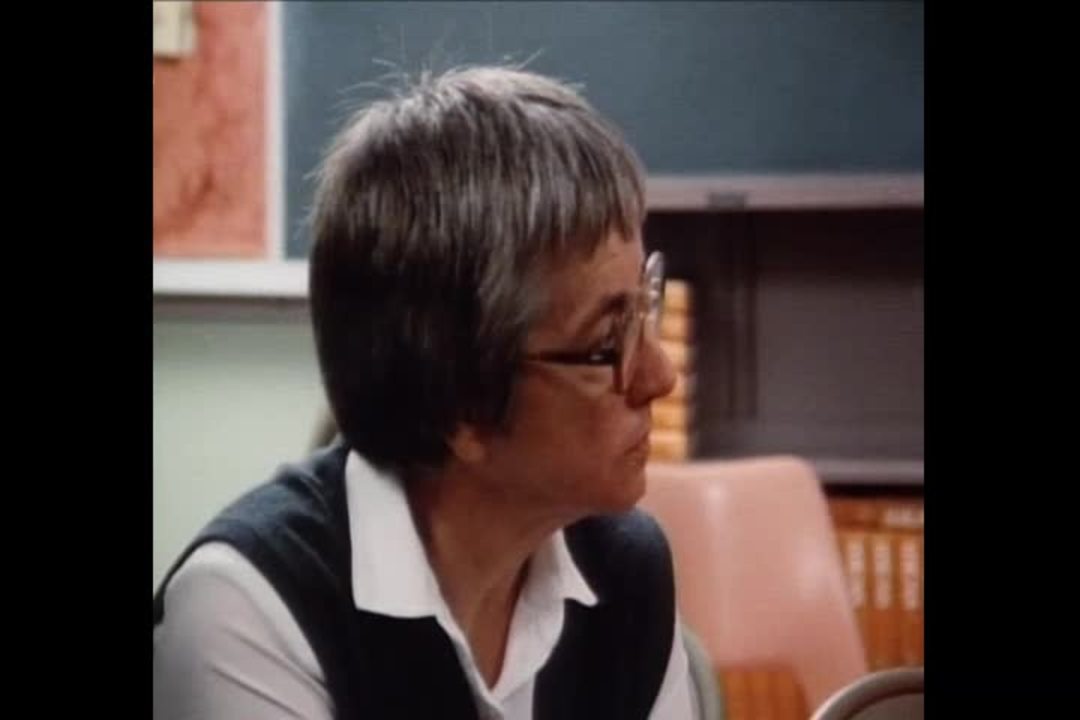
Help everyone explore new worlds and ideas. Support your PBS station.
[MUSIC PLAYING]
When civil rights leader Martin Luther King Jr. was assassinated in 1968, grief and frustration erupted in America's cities. And far away in Iowa, one third grade teacher knew she had to do something.
The shooting of Martin Luther King could not just be talked about and explained away. There was no way to explain this to little third graders in Riceville, Iowa. I knew that it was time to deal with this in a concrete way, not just talk about it. Because we had talked about racism since the first day of school.
This is a fact. Blue-eyed people are better than brown-eyed people.
It was a daring experiment in prejudice.
I watched wonderful, thoughtful children turn into nasty, vicious, discriminating little third graders.
Can one teacher, in one day, change the lives of her students forever?
Tonight, a Frontline classic, A Class Divided.
[THEME MUSIC]
August 1984, a high school reunion brings some 50 former students to Riceville, Iowa. Eleven of them, some with their spouses and children, arrive early for a special reunion with their former third grade teacher, Jane Elliott.
I made it!
[LAUGHTER]
This is my husband, Tom.
Tom! Bryan!
[LAUGHTER]
How are you?
Oh, I'm just fine.
Roy Wilson.
I made it.
You darling!
It's been a long time. Haven't been here in--
I'm so glad to see you.
--14 years.
[INTERPOSING VOICES]
How are you doing?
Fine.
A long time since I've seen you.
Yeah, it has been.
Where are your little ones?
They're at home with mom.
And this is your husband, Mr.--
Greg Rollin.
Greg Rollin. Nice to meet you.
Fourteen years earlier, when they were students in her third grade classroom, ABC News filmed a two-day exercise for a documentary, The Eye of the Storm. Now, at their request, they will see that film again and relive the experience of her unique lesson in discrimination.
[CHILDREN SINGING "GOD BLESS AMERICA"]
This is a special week. Does anybody know what it is?
[INTERPOSING VOICES]
National Brotherhood Week. What's brotherhood?
Be kind to your brothers?
Be kind to your brothers.
Like you would like to be treated.
Treat everyone the way you would like to be treated. Treat everyone as though he was your--
Brother.
Brother. And is there anyone in this United States that we do not treat as our brothers?
Yes.
Who?
The black people.
The black people. Who else?
Indians?
Absolutely, the Indians. And when you see-- when many people see a black person, or a yellow person, or a red person, what do they think?
[INTERPOSING VOICES]
--stupid.
Look at the dumb people.
Yeah, look at the dumb people. What else do they think sometimes? What kinds of things do they say about black people?
They're "negroos," niggers.
In the city, many places in the United States, how are black people treated? How are Indians treated? How are people who are of a different color than we are treated?
Like they aren't part of this world. They don't get anything in this world.
Why is that?
Because they're a different color.
You think you know how it would feel to be judged by the color of your skin?
Yeah.
I don't-- do you think you do? No, I don't think you would know how that felt, unless you had been through it. Would you? It might be interesting to judge people today by the color of their eyes. Would you like to try this?
Yeah.
Sounds like fun, doesn't it? Since I'm the teacher, and I have blue eyes, I think maybe the blue-eyed people should be on top the first day.
You mean up here? [INAUDIBLE]
I mean, the blue-eyed people are the better people in this room.
Nuh-uh.
Oh yes they are. Blue-eyed people are smarter than brown-eyed people.
[LAUGHTER]
My dad isn't that stupid.
Is your dad brown-eyed?
Yeah.
One day, you came to school, and you told us that he kicked you.
He did.
Do you think a blue-eyed father would kick his son?
Yep.
My dad would.
My dad's blue-eyed. He's never kicked me. Greg's dad is blue-eyed. He's never kicked him. Rex's dad is blue-eyed. He's never kicked him. This is a fact. Blue-eyed people are better than brown-eyed people. Are you brown-eyed or blue-eyed?
Blue.
Why are you shaking your head?
I don't know.
Are you sure that you're right? Why? What makes you so sure that you're right?
I don't know.
The blue-eyed people get five extra minutes of recess, while the brown-eyed people have to stay in.
Eww.
The brown-eyed people do not get to use the drinking fountain. You'll have to use the paper cups. You brown-eyed people are not to play with the blue-eyed people on the playground, because you are not as good as blue-eyed people. Well, the brown-eyed people in this room today are going to wear collars, so that we can tell from a distance what color your eyes are.
On page 127, 127-- is everyone ready? Everyone but Laurie. Ready Laurie?
She's a brown-eyed.
She's a brown-eyed. You'll begin to notice today that we spend a great deal of time waiting for brown-eyed people. The yard-stick's gone. Well, OK. I don't see the yard-stick. Do you?
It's over there.
Hey, Mrs. Elliott, better keep that on your desk, so if the brown-eyed people get out of hand--
Oh, you think if the brown-eyed people get out of hand, that would be the thing to use? Who goes first to lunch?
Blue-eyed.
The blue-eyed people. No brown-eyed people go back for seconds. Blue-eyed people may go back for seconds. Brown-eyed people do not.
What about brown-eyed?
Don't you know?
They're not smart.
Is that the only reason?
We're afraid they'll take too much.
They might take too much.
[INTERPOSING VOICES]
OK, quiet, please.
And it seemed like, when we were down on the bottom, everything bad was happening to us.
The way they treated you, you felt like you didn't even want to try to do anything.
Seemed like Mrs. Elliott was taking our best friends away from us.
What happened at recess? Were two of you boys fighting?
[INTERPOSING VOICES]
Russell and John were.
What happened, John?
Russell called me names, and I hit him-- hit him in the gut.
What did he call you?
Brown eyes.
Did you call him brown eyes?
They always call us that. Greg, and all the blue eyes call us that.
They keep calling, brown eyes!
Come here brown eyes!
And they were calling us blue eyes.
I wasn't. Sandy and Donna were.
Yeah.
What's wrong with being called brown eyes?
It means that we're stupider-- well, not that, but--
Oh, that's just the same way as other people calling black people "niggers."
Is that the reason you hit him, John? Did it help? Did it stop him? Did it make you feel better inside? Make you feel better inside? It make you feel better to call him brown eyes? Why do you suppose you call him brown eyes?
Probably because he has brown eyes.
Is that the only reason? You didn't call him brown eyes yesterday, and he had brown eyes yesterday. Didn't he?
Because we just thought of it.
Yeah, ever since you put those blue things on their neck--
We tease them. We kind of tease them.
Oh, is this teasing?
No. Well, he did it once.
Were you doing it for fun, to be funny? Or were you doing it to be mean? I don't know. Don't ask me. Did anyone laugh at you, when you did it?
I watched what had been marvelous, cooperative, wonderful, thoughtful children turn into nasty, vicious, discriminating little third graders, in a space of 15 minutes.
Yesterday, I told you that brown-eyed people aren't as good as blue-eyed people. That wasn't true. I lied to you yesterday.
Oh, boy, here we go again.
The truth is that brown-eyed people are better than blue-eyed people.
[LAUGHTER]
Russell, where are your glasses?
I forgot them.
You forgot them. And what color are your eyes?
Blue.
Susan Ginder has brown eyes. She didn't forget her glasses.
[INTERPOSING VOICES]
Russell Ring has blue eyes. And what about his glasses?
He forgot them.
He forgot them. Yesterday we were visiting, and Greg said, boy I like to hit my little sister as hard as I can. That's fun. What does that tell you about blue-eyed people?
They're naughty.
They fight a lot.
The brown-eyed people may take off their collars, and each of you may put your collar on a blue-eyed person.
Put down your hands.
The brown-eyed people get five extra minutes of recess. You blue-eyed people are not allowed to be on the playground equipment at any time. You blue-eyed people are not to play with the brown-eyed people. Brown-eyed people are better than blue-eyed people. They are smarter than blue-eyed people. And if you don't believe it, look at Bryan. Do blue-eyed people know how to sit in a chair? Very sad, very, very sad.
Who can tell me what contraction should be in the first sentence? Go to the board, and write it, John. Come on. Let's do it again. Loosen up, up, up, up. Come on. That's better! Now, do you know how to make a W? OK, write the contraction for "we are." Now, that's beautiful writing. Is that better?
Yes.
Brown-eyed people learn fast, don't they? Boy, do the brown-eyed people learn fast. Very good!
Greg, what did you do with that cup? Will you please go and get that cup, and put your name on it, and keep it at your desk. Blue-eyed people are wasteful.
OK, want to be timed this morning?
Yeah.
I use Orton-Gillingham phonics. We use the card pack. And the children-- the brown-eyed children-- were in the low class the first day, and it took them 5 and 1/2 minutes to get through the card pack. The second day, it took them 2 and 1/2 minutes. The only thing that had changed was the fact that now, they were superior people.
[INTERPOSING VOICES]
You went faster than I've ever had anyone go through the card pack.
[INTERPOSING VOICES]
Why couldn't you get them yesterday?
We were brown-eyed.
We had those collars on. And we--
You think the collars kept you from--
We kept thinking about those collars.
Oh.
You kept going like this. And my eyes kept rolling around.
Oh, and you couldn't think as well with the collars on.
Four minutes and 18 seconds.
I knew we weren't gonna make it.
Neither did I.
How long did it take you yesterday?
Three minutes.
Three minutes. How long did it take you today?
Four minutes and 18 seconds.
What happened?
It went down.
Why? What were you thinking of?
This.
I hate today.
How do you do? I hate it, too.
Because I'm blue-eyed.
See, I am, too.
It's not funny. It's not fun. It's not pleasant. This is a filthy, nasty word called discrimination. We're treating people a certain way, because they are different from the rest of us. Is that fair?
No.
Nothing fair about it. We didn't say this was going to be a fair day, did we?
No.
And it isn't. It's a horrid day.
Are you ready? What did you blue-- people who are wearing blue collars now, find out today?
I know what they felt like yesterday.
I did, too. Eww!
How did they feel yesterday?
Down.
Like a dog on a leash.
Yeah.
It feels like a chain wherever you go.
--in the prison, like you're chained up in the prison, and you're throwing the key away.
Should the color of some other person's eyes have anything to do with how you treat them?
No.
All right, then should the color of their skin?
No.
Should you judge people by the color of their skin?
No.
You're going to say that today, and this week, and probably all the time you're in this room. You'll say, No, Mrs. Elliott, every time I ask that question. Then, when you see a black man, or an Indian, or someone walking down the street, are you going to say, ha ha! Look at that silly-looking thing.
No.
Does it make any difference whether their skin is black, or white, or yellow, or red? Is that how you decide whether people are good or bad? Is that what makes people good or bad?
No!
Let's take these collars off.
Hey, don't get sticky stuff on it.
Here, Mrs. Elliott. You can have it.
What would you like to do with them?
Throw them away!
Go ahead.
Go ahead!
[GIGGLES]
[INTERPOSING VOICES]
Now you know a little bit more than you knew at the beginning of this week.
Yes.
A lot!
Do you know a little bit more than you wanted to?
Yes, Mrs. Elliott!
This isn't an easy way to learn this. Is it?
No, Mrs. Elliott!
Oh, will you stop that?
[LAUGHTER]
OK, now let's all sit down here together, blue eyes and brown eyes. Does it make any difference what color you are?
No.
Down, girl.
Not up, down.
[INTERPOSING VOICES]
Oh-ho! You found your friend, huh?
We're friends again!
OK, are you ready to listen up? OK, now are you back.
Yeah!
That feel better?
Yeah!
Does the color of eyes that you have make any difference in the kind of person you are?
No, Mrs. Elliott!
Does that feel like being home again, girls?
Yes, Mrs. Elliott!
Oh, will you stop it!
[LAUGHTER]
This was the third time Jane Elliott had taught her lesson in discrimination. The first, two years earlier, was in April of 1968. On the day after Martin Luther King was killed, one of my students came into the room and said, they shot a king last night, Mrs. Elliott. Why'd they shoot that king? I knew the night before that it was time to deal with this in a concrete way, not just talk about it. Because we had talked about racism since the first day of school. But the shooting of Martin Luther King, who had been one of our heroes of the month in February, could not just be talked about and explained away. There was no way to explain this to little third graders in Riceville, Iowa.
As I listened to the white male commentators on TV the night before, I was hearing things like, who's going to hold your people together? As they interview black leaders. What are they going to do? Who's going to control your people? As though this was-- these people were subhuman, and someone was going to have to step in there and control them.
They said things like, when we lost our leader, his widow helped to hold us together. Who's going to hold them together? And the attitude was so arrogant, and so condescending, and so ungodly, that I thought if white male adults react this way, what are my third graders going to do? How are they going to react to this thing?
I was ironing the teepee. We studied an Indian unit. We made a teepee every year. The first year, the students would make the teepee out of pieces of sheet. We'd sew it together. And the next year, we'd decorate it with Indian symbols.
I was ironing the previous year's teepee, getting it ready to be decorated the next day. And I thought of what we had done with the Indians. We haven't made much progress in these 200, 300 years. And I thought, this is the time now to teach them, really, what the Sioux Indian prayer that says, oh, Great Spirit, keep me from ever judging a man, until I have walked in his moccasins, really means.
And for the next day, I knew that my children were going to walk in someone else's moccasins for a day. Like it or lump it, they were going to have to walk in someone else's moccasins. I decided at that point that it was time to try the eye color thing, which I had thought about many, many times but had never used.
So the next day, I introduced an eye color exercise in my classroom and split the class according to eye color and immediately created a microcosm of society in a third grade classroom.
Riceville hasn't changed much in the 17 years since then. It's still a small farming community, surrounded by corn fields. Its population is still under 1,000. And it's still all white and all Christian. And though Jane Elliott has continued to teach her lesson in discrimination, there has been little outward local reaction, no objections from school authorities or the parents of the 300-odd students who have, by now, been through it.
OK, let's get in a circle.
OK.
The reunion of her former third graders was Jane Elliott's first chance to find out how much of her lessons her students had retained.
All right, now, Raymond, why-- I want to know why you were so eager to discriminate against the rest of these kids? At the end of the day, I thought, the miserable little Nazi.
[LAUGHTER]
Really, I just-- I couldn't stand you.
It felt tremendously evil. You could-- all your inhibitions were gone, and no matter if they were my friends or not, any pent-up hostilities or aggressions that these kids had ever caused you, you had a chance to get it all out.
I felt like I was a king, like I ruled them brown eyes, like I was better than them, happy.
You know.
And you did it all day.
Yeah.
How did you feel when you were the out group?
Boy, that day, after we went home, woo hoo. Talk about hating somebody. It was there.
You hated me?
Yeah, of what you were putting us through. Nobody likes to be looked down upon. Nobody likes to be hated, teased, or discriminated against. And it just boggles up inside of you. You just get so mad.
Were you just angry, or was there more than that?
I felt demoralized, humiliated.
Is the learning worth the agony?
Yes.
It made everything a lot different than what it was. You-- we was a lot better family, all togeth-- even in our houses, we was probably. Because it was hard on you. When you have your best friend one day, and then he's your enemy the next, it brings it out real, real quick in you.
Some of the remarks were the kinds of things I would have wished I could have programmed into them. If I had been able to program them, they're the things I would have wanted them to say. Some of the things were just mind-blowing.
You know, you hear these people talking about different people, and how they're, you know, they're different. And they'd like to have them out of the country. I wish they'd go back to Africa, you know, and stuff. Sometimes I just wish I had that collar in my pocket. I could whip it out, and put it on, and say, wear this. And put yourself in their place. I wish they would go what I went-- you know, do what I went through.
We was at a softball game a couple weekends ago. And there was a black yelling, hi, Verla, you know. And we hugged each other and everything. And some people really looked just like, what are you doing with him? You know. And you just get this burning feeling, sensation, and you just want to let it out, and put them through what we went through to find out they're not any different.
I still find myself, sometimes, when I see some people together, and I see how they act, you know, I think, well that's black. And then right in the next second, I don't even finish the thought, I'm saying, well, I've seen whites do it. I've seen other people do it. It's not just the blacks. It's-- everyone acts differently. It's just the different color is what hits you first. And then later-- as I said, I don't even finish that thought before I remember back when I was like that, and I remember, not, you know-- everyone acts the same way. It's just your way of thinking is the difference.
Like when my grandparents or somebody, and they start talking about old times, and they say the Japs, and all this and that, and they start, you know, holding that against them. I think how would you like to have been them? Japanese Americans getting thrown into this camp, just because they happen to be part Japanese. You know, I just-- calm down and think about it. But when they get older, they're set in their ways. And that's not going to change.
When you get older?
I'll be set in my ways, but they're different than their ways. When people--
I was absolutely enthralled. Sandy Dohlman's statements that, when my son comes home with the word nigger and the other things that he hears downtown, I say to him, listen, that isn't the way we judge people. You don't judge people by how they look. You judge them by what's on their inside, not their outside.
I'm glad that she's teaching him not to hate. Because even though he does hear this from the other people, if he goes home, and he thinks, well, Mom and Dad like the black people, I'm going to like them, too. So I don't think he's going to pick nothing bad out of it.
You chose your husband well.
He chose me.
You chose her well.
Little kids will take in-- you know, they'll listen to a lot of other people, too. So they're going to end up, kind of, confused over it.
But if she keeps on telling him, is he going to be the kind of person you kids are, or is he going to be the kind who'll judge people by the color of their skin?
Well, he'll know right-- somewhat right from wrong. He'll know that he won't--
--but he'll have the ideas. He won't be judging them by their color, but he won't know what we know fully, having been through it.
He won't learn--
--the collar thing.
--the prejudice from us.
He won't learn prejudice first-handed.
Yeah. He won't learn to be prejudiced from us. I mean, they won't learn to discriminate between people from us. He might hear it from others, but never from us.
OK, what's it like to be married to somebody like that?
[LAUGHTER]
When I was going to marry Sheila, and I knew for my future that I was going into the military. At first, I thought, is she going to be able to handle being with all the different nationalities? And then I read The Storm-- read the book--
A Class Divided.
--The Class Divided before we got married, and before I joined the army. And I said, hey, she's not going to have any problems.
Should every child have the exercise, or should every teacher?
Everybody, not just--
I think every school ought to implement something like this program in their early stages of education.
If Jane Elliott's lesson in discrimination changed the way these young people feel about discrimination and racism, it also had a totally unexpected result.
The second year I did this exercise, I gave little spelling tests, math tests, reading tests, two weeks before the exercise, each day of the exercise, and two weeks later. And almost without exception, the students' scores go up on the day they're on the top, down on the day they're on the bottom, and then maintain a higher level for the rest of the year after they've been through the exercise.
We've sent some of those tests to Stanford University, to the psychology department. And they did a sort of an informal review of them. And they said that what's happening here is kids' academic ability is being changed in a 24-hour period. And that isn't possible, but it's happening. Something very strange is happening to these children, because suddenly, they're finding out how really great they are, and they are responding to what they know now they're able to do. And it has happened consistently with third graders.
The film made of Jane Elliott's third graders in 1970 has been widely used with students and teachers, and by government, business, and labor organizations concerned about human relations. Perhaps the most unusual use of it is here, at Green Haven Correctional Facility, a maximum security prison in Stormville, New York.
[INTERPOSING VOICES]
Here, in a sociology course taught by Professor Duane W. Smith of Dutchess Community College, his almost exclusively black and Hispanic classes have been seeing the film for more than 10 years.
What I'd like to do is introduce the subject of prejudice and discrimination through this film called The Eye of the Storm.
Blue-eyed people are smarter than brown-eyed people. They are cleaner than brown-eyed people. They are more civilized than brown-eyed people.
Sandra and her brown-eyed friends didn't like that day. But Raymond did.
I felt like I was a king, like a--
Do you think the children, by this process, really learned the meaning of discrimination?
Most of the children, before the film started, they had played and lived together in harmony. And the certain actions coming from the teacher, and seeing the teacher as an authoritarian figure and someone to respect, they accepted the views that was being given to them. But I think at the end of the lesson, they could clearly see that prejudices and other forms of discrimination are things that people deal with in their minds, that they're not actually physical barriers that say, yo, you can't cross the street.
The one kid I could really agree with was at recess. He was a brown-eyed kid. He had this inner turmoil against this feeling of being divided or prejudiced against, where he would hit another kid, that he's known for so many years, in the gut. Whether-- he also stated that it didn't help any. So that automatically should be a lesson to every adult in the world. Violence doesn't help any. And you know, this is a film that I hope that my children get to see.
Unlike New York, Iowa is 98% white Anglo-Saxon. Yet even here, minority groups account for more than 20% of the prison population. To make sure its prison system employees are sensitive to the concerns of this large minority, the Iowa Department of Corrections last fall hired Jane Elliott to give her lesson to some of them. The group, which included prison guards and parole officers, was told only that it would be attending a day-long workshop. David Stokesberry--
Most of our training we go to, people give you information, and you learn that way.
Blue eye.
When I first came with the sign up and such and got put in the group, I didn't know-- when I started seeing the signs around, brown eyes only and such, I figured they were the better group, because they had a lot of spaces available, and there were none for the blue eyes.
So when I got put in the blue eyes group, and put the collar on, then I knew well, then I was going to be in the deprived group, I guess.
OK, now you can stay in this area.
The workshop was supposed to begin at 9:00. They took the brown eyes in about 9:00, and then left us standing in the hall.
I literally stood, because there weren't enough chairs. And I didn't know whether or not I wanted to try to take a chair down, I didn't know if somebody would come take the chair away from me if I did.
While David Stokesberry and the other blue-eyed people waited, inside the meeting room, Jane Elliott prepared the brown-eyed people for what was going to happen.
Now, this is not something I can do alone. This exercise won't work without your cooperation. Blue-eyed people aren't allowed to smoke. Blue-eyed people aren't allowed to sit in these empty chairs. Do not let a blue-eyed person sit next to you. You know you can't trust them. And besides which, they don't smell good. Everybody knows that about blue-eyed people. You don't know what you can catch from a blue-eyed person.
By 9:20, I felt some antagonism. You know, I'm stuck out here for 20 minutes, standing, waiting.
I still say we ought to see what kind of reaction we'd get by everyone just simply going in. No one wants to do it?
But he seems to have courage and a conviction to do a lot of talking.
[INAUDIBLE]
Oppose it all by singing a song and doing something really loud, you know--
"We Shall Overcome?"
Yeah. Right?
We need to have you keep it down. I don't know how many times I need to give that instruction. But you need to keep it down, so you don't bother the people in the workshop.
I was pretty well ticked off by the time we got taken in there.
Purses and overcoats in the corner here. I need to have your put your purse and your coat in the corner. Purse and coat in the corner. Purses and overcoats in the corner.
It would be to your advantage in the future, people, if you'd get to meetings on time. And it would also be to your advantage if you'd put your gum away.
I'll leave.
Put your gum away.
I'll leave.
Do you want to get paid for today?
Mhm.
Well, then stay, but put your gum away.
Well, I don't have a purse, so I don't have a place to put my gum.
I'm sure that you are inventive enough to find a place for the gum. Now, I'd like for you to notice where she put her gum. You have this problem with blue-eyed people. You give them something decent and they just wreck it. You'll also notice that blue-eyed people spend a lot of time playing, look at me, see how cute I am. I can be funny. I can make a joke of this. This is amusing. I'm amused by this. Another thing that is obvious about blue-eyed people is that they're poor listeners.
The first thing you have to do when you're teaching in a segregated situation, when you're working in a segregated situation, is teach the listening skills. The listening skills are, number one, good listeners have quiet hands, feet, and mouths. Everyone needs to write these down.
I'd like for you to look at the man in the back, in the black jacket. The game we're playing is, playing it cool. This is a favorite blue-eyed game, playing it cool. Nobody can bother me, man. I can handle this. I don't have to do this. I'm going to ignore this whole thing.
Number two, good listeners keep their eyes on the person who is speaking. I take it you don't have a pencil. Nor you?
No.
Perhaps you could borrow one from one of your neighbors. Sir, I realize that you feel that you don't need to write it down. But whether or not you write it down, perhaps you could remember it. Good listeners have quiet hands, feet, and mouths. Do you know what that means?
I'm not sure.
I believe that. Do you want me to explain it to you?
That's OK. I'll get a pencil and write this down directly.
Look, blue-eyed people, many of you have pencils. Will one of you please lend him a pencil? Or don't you trust him? Which I can understand. From the last 10 minutes, what have you observed about blue-eyed people?
Blue-eyed people are very stubborn, very self-centered, and wish to control as much of their surrounding as possible, people-wise, I mean. Very inconsiderate people. I don't even know why you have them here in the first place.
We have them here, because we are required to have them here.
We have to, huh?
This is one of the things you have to put up with.
Oh.
Number three, good listeners listen from the beginning to the very end. OK. Good listeners decide to learn something. And this is the thing you'll have the most difficulty with with blue-eyed people. They decide not to learn something. Some of you have had trouble with blue-eyed people in your home environment. Some of you have had trouble with blue-eyed people in your workplace. Does anybody have an example of that that they'd like to talk about? Anyone?
I have two nephews and one blue-eyed and one's brown-eyed. And the blue-eyed one, he never cleans his room. and he's real lazy. And he doesn't seem to have a lot of energy, the blue-eyed one. But the brown-eyed one, he's real outgoing and he's plays in sports and he's pretty good at it. He just seems like a better kid. So if I have kids, I hope they have brown eyes.
Are you married?
No.
Then, it's a good thing you don't have kids, isn't it.
Right.
Well you will know what to do when you choose a mate.
Right.
Would you like to read that first listening skill to me?
I haven't got it on my paper yet.
Oh. Why is that? I haven't borrowed the pencil to write it down as yet.
Do you think it's unnecessary?
At this particular point, yes, I do.
Why?
I have it in my head, for the most part.
There's a lot of space up there for it, isn't there friend? Do you suppose you could tell me what it is?
It has something to do with keeping your hands and feet still.
Has something to do with that.
[LAUGHTER]
I find it interesting that you're amused by our having to stand here and wait for this man to do something that everybody else has already done. I find that highly interesting. Stupid, but interesting. If you are in a situation where someone is constantly, constantly refusing to do what the people in authority ask them to do, what do you know about them? What you do about that person?
Well, think it's a game with them, attention.
Has it gained anything for this gentleman?
Disrespect from, I think, the brown-eyed people.
Has it proven anything to brown-eyed people?
Yes, that this is a typical trait of a blue-eyed person.
Now, read the second one.
I don't have the second one. Can I read it off hers?
You don't have the second one either? You were keeping it in your head. What happened to that plan?
Just the first one I had in my head, not the second one.
The other three aren't important?
Well, they're probably important.
But not important enough for you to write down, right?
Well, they're important. I should've written them down, most probably.
Most probably? Does anybody back there know? You don't have it written down either? I want you to take a look at these two so-called gentlemen. Now, we need to hear the good listening skills from you. I don't want you to think that I'm badgering you boys. But on the other hand--
I don't think that.
On the other hand, you are here to learn something. And if you learn nothing else today, it would be nice if you would learn the listening skills. What do you know now about blue-eyed people that you didn't know before you came in here?
I'm finding I'm going to have to explain things a bit more explicitly to a blue-eyed person than I would to a brown-eyed person.
How many times did I have to repeat the listening skills for Roger? Well, probably Roger is having a rough time today, isn't he. It was about six or seven different times.
You think that's amusing, Roger?
Apparently, somewhat amusing.
As part of the lesson, the Corrections Department employees took a written test.
All right. I need these names and the scores.
I have KR 11.
I'm sorry. I can't hear you.
KR, just initials. 11.
Just KR? Just an initial? No last name?
No names.
How many?
11. And Churdon or Charles, I'm not sure.
Thank you, sir.
Tell me the name again.
Churdon.
You can't read the name.
No. I can't. Can't make it out.
It's probably mine.
What's your name?
My name is Chambers.
First name?
Jeanine.
And what was her score?
6.
Next.
E. Riley with a 5.
E?
E. Riley.
Will E. Riley please stand?
That's mine.
You know, what you do to the image of blues with your behavior is unfortunate. What you three people do to the image of women with your behavior really makes me angry. The fact that you do this kind of thing and this kind of sloppy work reflects badly on women. I resent that doubly. Yes?
Ma'am, I'd really appreciate it if you'd call us by name when you say, you three people we don't know who you're speaking to. It could be anyone here.
My dear, if you wanted me to call you by name, you'd've put your name on your paper.
It's on my--
It was to be on your paper.
You didn't see my papers, ma'am. I didn't get your name either, because it wasn't on your paper.
That's right.
All right. Now, how can one call you by your name, if you don't care enough about your name to put it on your paper? Don't expect me to worry about it. Don't expect me to worry about it, if you don't put it on your paper. Don't sit here and say my name is important to me, after you have just deliberately not put it on your paper. You're being totally unrealistic.
I don't remember saying my name was important to me. I remember saying, I like to know who you're speaking to when you say, you three.
Then, what should you do?
Ask you to use my name, which I did.
And where should your name have been?
Right where it is.
On your paper?
And on my birth certificate.
Is it on your paper?
No, ma'am.
Where'd you get a birth certificate?
Same place you got yours.
Out of a slot machine. Same as you did, lady.
I think you're probably right about your own.
Least I know who my parents are, ma'am.
Is she being rude?
Yes.
Is she being inconsiderate?
Very.
Is she being uncooperative?
Very.
Is she being insulting?
Yes. Are those the things that we've accused blue-eyed people of being?
Yes.
Is she proving that we're right?
Yes.
Does anyone have any comments to make at this point?
Do you feel that there are important blue-eyed people?
There are exceptions to every rule.
And what are those exceptions?
There are a few important blue-eyed people.
Very few.
You said that.
Do you think that you're one of them?
No.
That's good.
Then, why are you up there then?
I'm blue-eyed. The difference between you and me is I have a brown-eyed husband and brown-eyed offspring. And I've learned how to behave in a brown-eyed society. And when you can act brown enough, then you, too, can be where I am.
I wouldn't want to be where you are.
Are you certain?
Absolutely positive.
You like where you are?
I love where I am.
You like it so much that you don't even identify yourself on your paper?
I don't need to, lady.
Her using the term lady where I'm concerned, what do you think she's trying to do? Is it ignorance or is it deliberately insulting?
I would say it was deliberately insulting.
If it's ignorance, she needs to be taught that to many of us, the word lady is a pejorative. I don't appreciate it. It's a put-down. And it's used to keep women in their place.
I will call you by the correct name.
Right.
I'm sorry.
I will call you by a correct name after this. I won't be kind.
That was kindness on your part?
Yes.
Then, you are--
I think calling someone a lady is a kindness.
Then, your problem is ignorance.
You can call me lady anytime you like.
I wouldn't do that to you.
No. I know you wouldn't.
I really wouldn't. And that's part of the problem, is a total lack of awareness at what sexism amounts to and how much you contribute to the sexism that keeps you where you are.
I like where I am, lady. I did it again, didn't I?
Yes.
I'm getting kind of fed up with this whole bunch of garbage.
Why?
Brown-eyed peoples are no different than we are. I hate to tell them that. They have these false delusions and such.
Are they being disruptive?
No. You trained them very well. I think that's what they did with the stormtroopers in Germany also. You guys do a real good job sitting out there.
You think that what's happening here today feels like it would have felt in Nazi Germany?
Yes.
Where do you think you are in that, then?
Where do I think I am?
Who are you, if you're in Nazi Germany? Who are you?
The Jews?
After a break for lunch, Jane Elliott helped the Corrections Department employees analyze what had happened.
Did you learn anything this morning?
I think I learned from the experience of feeling like I was in a glass cage I was powerless. There was a sense of hopelessness. I was angry. I wanted to speak up and yet, at times, I knew if I spoke up, I'd be back in a powerless situation. I'd be attacked. A sense of hopelessness, oppression.
Had you experienced that before?
I realized this morning that there were very few times in my life that I've ever been discriminated against, very few.
And you were this uncomfortable in an hour and a half?
I was amazed at how uncomfortable I was in the first 15 minutes.
Can you empathize at all, then, with blacks, minority group members in this country?
I'm hoping better than before.
We tried to argue with you, you would use just the mere argument as reason for us being lesser than the brown-eyed folks. You know, you couldn't win.
Yeah. Don't we do that every day?
I think some do, yeah. But I would hope that I never get so unreasonable. You know, the statements you were making were groundless and such. And yet, we couldn't argue with them, because if we argued, then we were argumentative and not listening and getting out of our place and all that stuff. And that was frustrating to me. And then, frustrating to me was the other little green tags who were sitting on their hands. My group here was, I didn't think, boisterous enough in our opposition to the whole thing.
Why didn't you people support one another? Why didn't the blue-eyed people-- the blue-eyed people on this side, just sat there. And let's face it, you covered your asses. Right? Why did you just sit there?
Well, I think that's symptomatic of the problem as a whole. We see that in society in general, we see a few people who are making a lot of noise. And the rest of the people sitting back, waiting to see what they're going to do.
OK. As long as I was picking on him, I was leaving you alone, right?
Right.
I'd say a lot of people accept that. They let a few people do their fighting for them And they stand back. and if this person's gonna to win, then they'll get on this side. If that person's not gonna win, they'll stay back over here, you know? That's just how it works.
If you were in a real situation where you had to do something about racism, would you stand up and be counted?
What I would do, I don't know. It would depend on--
But you would do something?
I would have to do something. I couldn't go home tonight and face my kids if I didn't.
How did you brown-eyed people feel while this was going on?
Embarrassed.
A sense of relief that I wasn't a blue-eyed person.
Sense of relief that you had the right color eyes? Absolutely.
I really understood, at least I felt that I understood, what it was like to be in the minority.
Why were you angry?
First of all, because it was unreasonable. Secondly, because I felt discriminated against. Thirdly, I think that all of us, everyone in this room, has dealt with discrimination on both sides. You don't have to be black or Jewish or Mexican, or anything else to have felt discrimination in your life.
And as you become an adult, you learn to deal with those feelings within yourself. You learn to handle those. And when you feel yourself in a situation that you can't get out of, which we couldn't, we were a captive audience. And it was not a normal situation, because normally you aren't badgered.
What if you had to spend the rest of your life this way?
I don't know how to answer that.
You don't wake up every morning knowing that you're different. You wake up as a white woman who is going to her job at 8:00 or whatever, where a black person is going to wake up knowing from the minute they get up out of the bed and look in the mirror, they're black. And they have to deal with the problems they've had to deal with ever since they were young and realize that I am different and I have to deal with life differently. Things are different for me.
And I don't think you can really say that you have felt-- maybe you have felt some sort of discrimination. But you haven't felt what it is like for a black woman to go through the daily experiences of arguing and saying, listen to me. My point of view is good. What I have to offer here is good. And no one wants to listen, because white is right. That's the way things are.
I think the necessity for this exercise is a crime. No. I don't want to see it used more widely. I want to see the necessity for it wiped out. And I think if educators were determined, that we could be very instrumental in wiping out the necessity for this exercise.
But I want to see something used. I'd like to see this exercise used with all teachers, all administrators, but certainly not with all students, unless it's done by people who are doing it for the right reasons and in the right way. I think you could damage a child with this exercise very, very easily. And I would never suggest that everybody should use it.
I think you could have training classes for teachers, bring them in, put them through the thing, explain what happened, do the debriefing, and then practice doing this until a group of teachers were able to do it on their own. And teachers are not disabled learners. They could learn to do this, obviously. If I can do it, most anyone can do it. It doesn't take a super teacher to do this exercise.
What began in a third grade classroom has spread, from students to teachers to corrections officers. At the center is still a single teacher, determined to inoculate her students, both young and old, against the virus of bigotry.
After you do this exercise, when the debriefing starts, when the pain is over and you're all back together and you're all one again, you find out how society could be, if we really believed all this stuff that we preach. If we really acted that way, you could feel as good about one another as those kids feel about one another after this exercise is over.
You create instant cousins. I thought maybe that lasted just while they were in my classroom, because of my superior influence. But indeed, these kids still feel that way about one another. They said yesterday-- over and over, the remark was made-- we're kind of like a family now.
They found out how to hurt one another and they found out how it feels to be hurt in that way. And they refuse to hurt one another that way again. And they said, we're kind of like a family now. And indeed we were.
[MUSIC PLAYING]
It takes time to build trust, time to find out what's true, time to make up your mind. It takes time to tell the stories that matter. Frontline.
To order Frontline's A Class Divided on DVD or VHS, call PBS Home Video at 1-800-PLAY-PBS.
A Class Divided
Please note that this video contains dehumanizing language. We have chosen to include it in order to honestly communicate the harmful language of the time; however, dehumanizing language should not be spoken aloud during class.
Supporting Materials
You might also be interested in…
10 Questions for the Past: The 1963 Chicago Public Schools Boycott
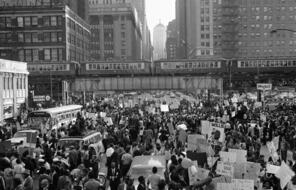
The 1968 East LA School Walkouts
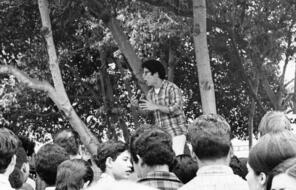
California Grape Workers’ Strike: 1965–66

#IfTheyGunnedMeDown

The Impact of Identity
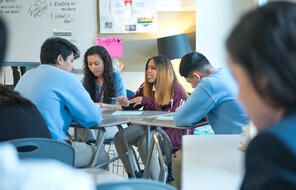
The Power of Images
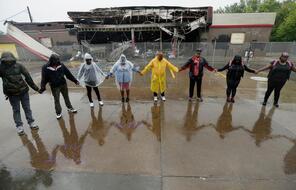
A Contested History
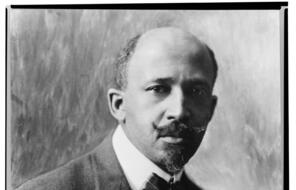
Defining Freedom
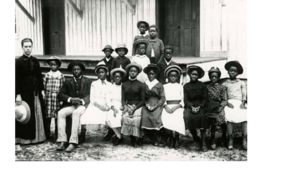
The Political Struggle, 1865–1866

Interracial Democracy
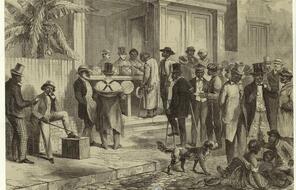
Violence and Backlash
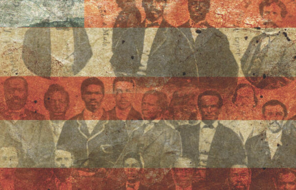
Legacies of Reconstruction
